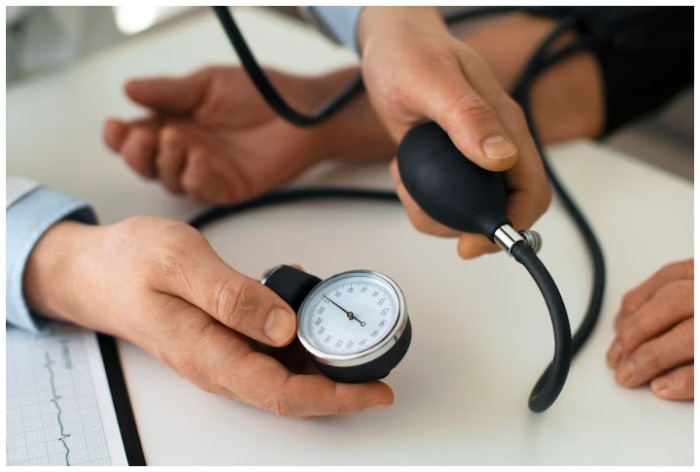Noticing fluctuation in blood pressure amid rise in temperature? Summer season can be a tad bit challenging for managing hypertension. Read on to know why BP rises in summer and how to regulate it.
During the summer, many people experience an increase in blood pressure due to various factors. Understanding why blood pressure rises in summer and implementing strategies to regulate it is important for maintaining cardiovascular health. Hypertension or high blood pressure also puts one at risk of other diseases as well. Like in winter, the arteries and blood vessels constrict, summer season has its own entailing issue that people with high BP must be mindful of.
WHY BP RISES IN HOT WEATHER?
High temperatures and humidity levels can cause blood vessels to dilate and lead to increased blood flow, resulting in higher blood pressure. The body’s natural response to heat is to increase blood circulation to help cool down, which can temporarily raise blood pressure.
In addition to when the body is dehydrated, blood volume decreases, and the blood becomes more concentrated, causing blood pressure to rise. Many people engage in outdoor activities and exercise during summer, which can temporarily increase blood pressure. While regular physical activity is beneficial for overall cardiovascular health, intense exercise or sudden bursts of activity in hot weather can cause a temporary rise in blood pressure.
HOW TO MANAGE HIGH BLOOD PRESSURE IN SUMMER?
- Stay Hydrated: Drink plenty of water and fluids to maintain proper hydration levels. Adequate hydration helps prevent dehydration, keeps blood volume stable, and supports normal blood pressure. Limit or avoid sugary drinks and alcohol, as they can contribute to dehydration.
- Limit Salt Intake: Be mindful of your salt intake and opt for healthier food choices. Avoid processed and packaged foods that are high in sodium. Instead, focus on fresh, whole foods and use herbs and spices to season dishes instead of salt.
- Wear Breathable Clothes: Seek shade, use fans or air conditioning, and wear lightweight, breathable clothing to help keep your body temperature down. Avoid prolonged exposure to extreme heat and try to stay in cooler environments as much as possible.
- Stress Management: Stress can contribute to elevated blood pressure. Incorporate stress management techniques such as deep breathing exercises, meditation, yoga, or engaging in activities you enjoy to help reduce stress levels.
- Exercise Smart: Engage in regular physical activity, but be mindful of the timing and intensity of your workouts. Try to exercise during cooler parts of the day, such as early morning or evening. Stay properly hydrated during exercise and listen to your body, adjusting the intensity or duration of your workouts as needed.
It’s important to note that if you have pre-existing hypertension or any other medical conditions, it is advisable to consult a doctor.

